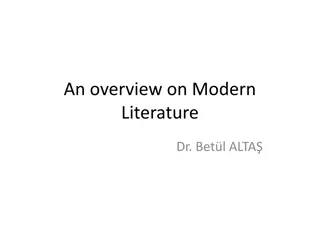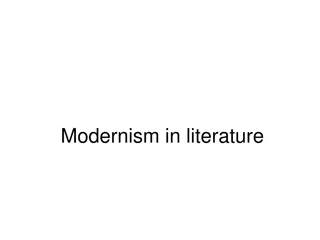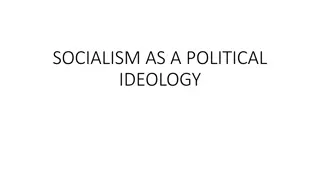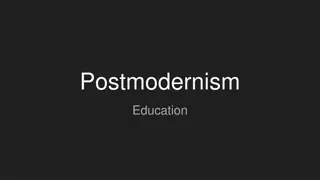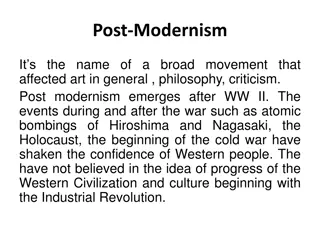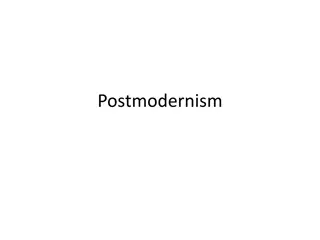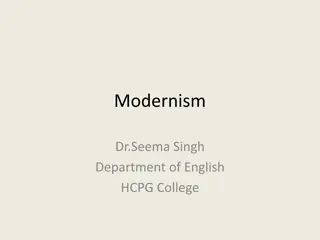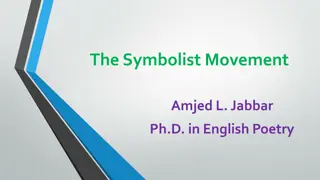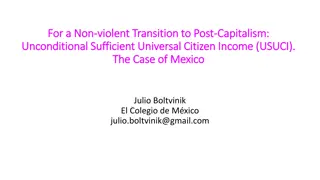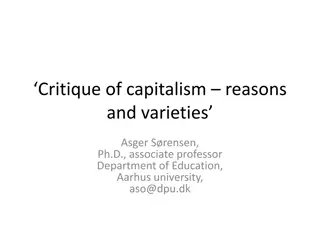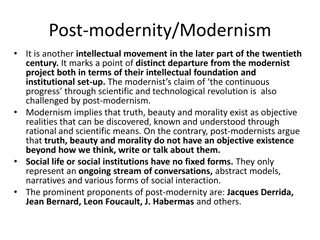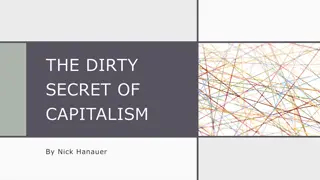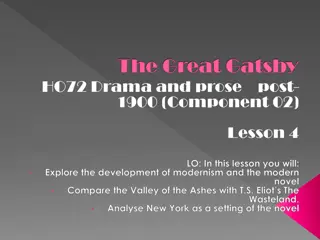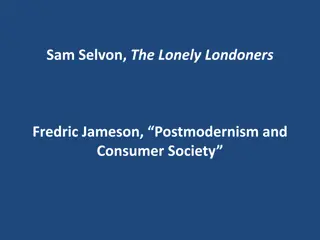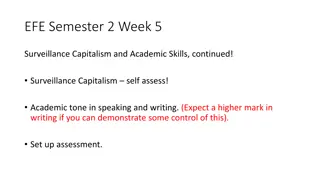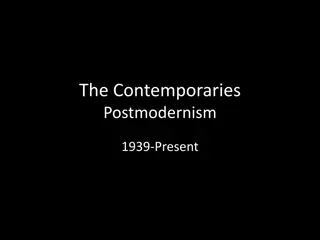Understanding Capitalism, Modernism, and Postmodernism in Literature
Terry Eagleton's essay delves into the impact of capitalism on art and literature, exploring the emergence of modern and postmodern literature in the capitalist and late capitalist eras. He discusses how late capitalism influences art with characteristics like mass consumerism and virtual reality. Postmodernism is portrayed as a genre that blurs boundaries and parodies commodity production without adding explicit meanings, aiming to empty art of social content.
Download Presentation

Please find below an Image/Link to download the presentation.
The content on the website is provided AS IS for your information and personal use only. It may not be sold, licensed, or shared on other websites without obtaining consent from the author. Download presentation by click this link. If you encounter any issues during the download, it is possible that the publisher has removed the file from their server.
E N D
Presentation Transcript
Capitalism, Modernism and Postmodernism by Terry Eagleton MA IV SEM PAPER X III DEPARTMENT OF ENGLISH GOVT COLLEGE PAONTA SAHIB
Eageltons essay, Capitalism, Modernism and Postmodernism, was first published in the New Left Review in 1983 in which his post Marxist analysis of literature is exposed. He accounts for capitalism influence on art and its role. The capitalist and late capitalist areas have seen two new forms of literature appear: modern and postmodern.
Art and literature have been influenced by some characteristics of late capitalism, such as virtual reality based on mass consumerism. Our society focuses on commodities sold to and ideologically integrated by the consumer: The commodity is less an image in the sense of a reflection than an image of itself, its entire material being devoted to its own self-presentation
Art and literature have been influenced by some characteristics of late capitalism, such as virtual reality based on mass consumerism. Our society focuses on commodities sold to and ideologically integrated by the consumer: The commodity is less an image in the sense of a reflection than an image of itself, its entire material being devoted to its own self-presentation
Postmodernism appears as a more cynical genre. Some of its features are the blurring of boundaries, pastiche and grotesque. It does not attempt to represent the world, since it is virtual, and would thus fail to describe it.
Eagleton also suggests that postmodersism aims at parodying the commodity production, without adding any meaning in it; if meaning was added in the pastiche, making it parody, it would serve to alienate the self from reality, and according to postmodern thought, there is no reality it can be alienated from. All these features aim at empting the social content of art.
Eagleton assessed the features of literature genres characteristic of capitalist stages, in order to draw a critical and theoretical approach of literature. He seems to focus on its ideological role, which is, more than its representational value, its only role left. Modernism deconstructs the unified subject of bourgeois humanism, draws upon key negative aspects of the actual experience of such subject in late bourgeois society, which often enough does not at all correspond to the official ideological version

 undefined
undefined

